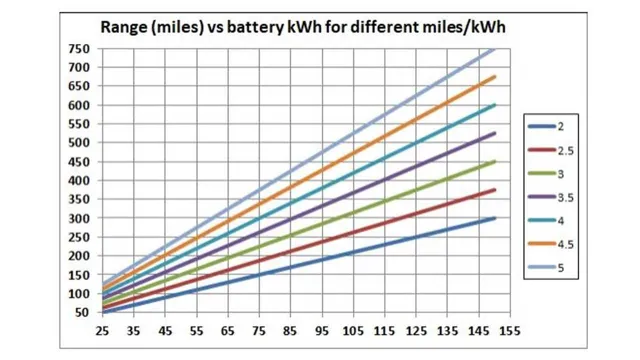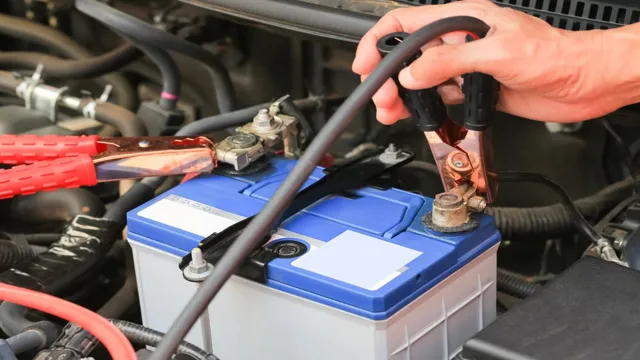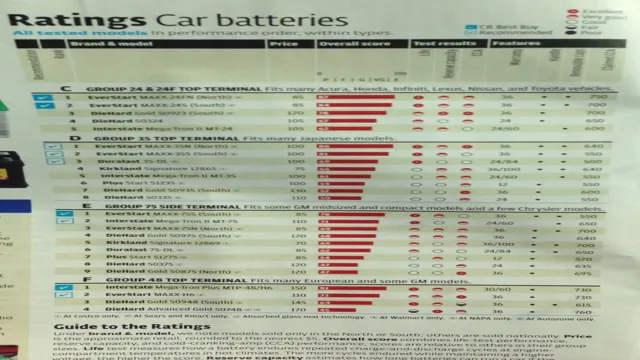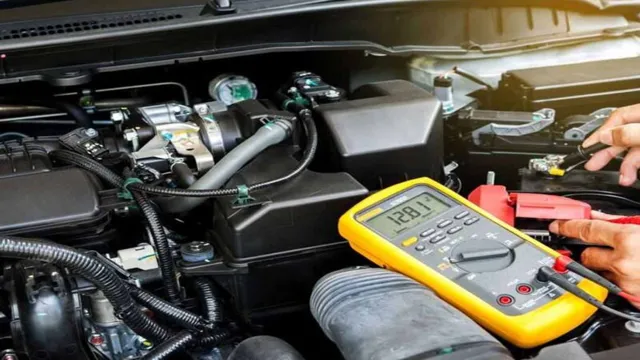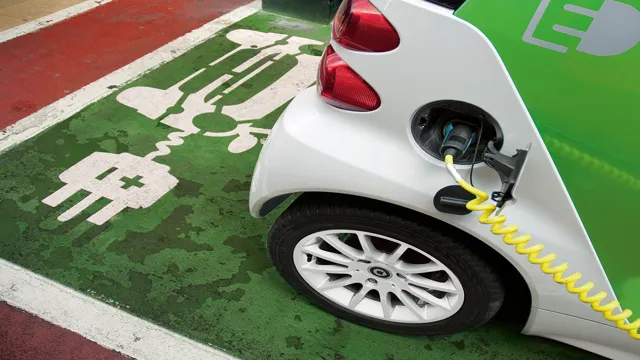Battery to Wheels Efficiency: How Electric Cars are Revolutionizing Transportation
Have you ever wondered how efficiently electric car batteries power the wheels? With the increasing popularity of electric vehicles, it’s essential to understand this aspect to assess their potential impact on the environment and cost-effectiveness. When we talk about electric cars, the battery is the powerhouse that determines their performance. The battery needs to convert the stored energy into usable power that drives the motor, and in turn, the wheels.
The efficiency of this process is pivotal in determining the driving range and performance of electric cars. In this blog, we’ll explore how electric car batteries function and how their efficiency results in the smooth operation of these eco-friendly vehicles.
What is Electric Car Efficiency?
When it comes to electric vehicles, one of the most important factors is their efficiency, which refers to how well the battery can convert its stored energy into power to move the wheels. Electric car efficiency is affected by various factors such as the type of battery used, the vehicle’s weight, and its aerodynamics. Lithium-ion batteries are currently the most efficient type of battery for electric cars due to their high energy density, low weight, and long life span.
Additionally, lighter and more aerodynamically-designed vehicles tend to have higher efficiency ratings as they require less energy to move. An efficient electric car can travel further on a single charge and have lower operating costs, making it a cost-effective and environmentally-friendly mode of transportation.
Definition and Explanation
Electric Car Efficiency Electric car efficiency refers to the amount of energy an electric vehicle uses to cover a certain distance. It is a measure of how much energy is converted into positive forward motion while minimizing the amount of energy that is lost as waste heat or by other inefficiencies. The efficiency of an electric car is determined by many factors, including the drivetrain design, the traction system, battery management, regenerative braking, and aerodynamics.
Higher electric car efficiency means lower energy consumption, which translates to longer driving range per charge. Some electric cars have an efficiency of over 90%, meaning that over 90% of the energy stored in the battery is used to power the wheels. The efficiency of an electric car is an essential aspect to consider when purchasing an electric vehicle since higher efficiency results in lower operating costs.
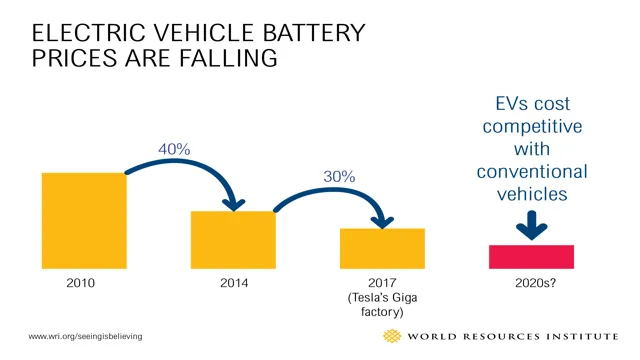
Why is Battery Efficiency Important?
Electric Car Efficiency Electric car efficiency, or the ability of a battery to convert stored energy into motion, is crucial for the advancement of the electric vehicle industry. Higher efficiency means longer driving ranges, shorter recharge times, and lower costs overall. But how is efficiency measured? The most common metric is kW per 100 miles (kWh/100 mi), which represents the amount of electricity needed to travel 100 miles.
A vehicle with a higher kW per 100 miles rating will consume more energy and have a shorter range. That’s why improving battery technology is so important. By reducing the amount of energy lost during the charging and discharging process, electric cars can go further on a single charge and ultimately become more accessible to consumers.
So, next time you’re considering buying an electric car, pay attention to its efficiency rating and choose a model with the best rating for your needs.
Factors Affecting Battery Efficiency
When it comes to electric cars, one of the most important factors affecting the efficiency of the battery is the weight of the vehicle. A heavier car requires more energy to move, which means more strain on the battery. Another important factor is how the driver operates the vehicle.
Driving at high speeds or accelerating too quickly can drain the battery faster, reducing its efficiency. Additionally, the temperature outside can impact the efficiency of the battery. Extreme heat or cold can affect the chemical reactions within the battery, causing it to lose power more quickly.
Finally, the age and condition of the battery itself can impact efficiency. As a battery ages, its capacity to hold a charge declines, reducing the efficiency of the car overall. By considering these factors and taking steps to maintain the battery’s health, electric car owners can ensure that their vehicles are functioning at peak efficiency and getting them to their destinations reliably.
Temperature
Temperature Temperature plays a crucial role in the efficiency of batteries. High temperatures can significantly reduce a battery’s lifespan, cause degradation of materials, and increase internal resistance, resulting in decreased performance. Conversely, low temperatures can also reduce battery performance, decreasing its capacity and making it more difficult to charge.
In extreme cold, batteries may even cease to function altogether temporarily. Therefore, it is crucial to maintain a balanced temperature range for optimal battery performance. Carrying out charging activities at an optimum temperature will also improve the battery’s overall performance and prolong its lifespan.
Remember, temperature control must be taken into account for optimum battery performance and longer life.
Driving Habits
When it comes to keeping your car’s battery in good working order, there are several factors that can affect its efficiency. One key factor is your driving habits. If you frequently take short trips or leave your car parked for long periods of time, your battery may not have enough time to fully recharge itself.
This can cause the battery to lose its ability to hold a charge over time, leading to a shorter lifespan overall. Additionally, if you frequently use electronic devices in your car, such as a phone charger or GPS, this can put additional strain on your battery. To ensure the best performance from your car’s battery, it’s important to take care of it by driving regularly and avoiding overuse of electronic devices.
By doing so, you can extend the life of your battery and avoid unexpected breakdowns.
Battery Management System
As a key component in electric vehicles, the battery management system (BMS) plays a crucial role in ensuring the efficiency and longevity of the battery. Several factors can affect the overall efficiency of the battery, including temperature, charging rate, and depth of discharge. Temperature has a significant impact on the battery’s performance, with higher temperatures accelerating the degradation of the battery.
In addition, the charging rate should be carefully monitored to prevent overcharging or undercharging, which can cause irreversible damage. Moreover, keeping the depth of discharge between 20-80% can extend the battery’s lifespan. By closely monitoring and controlling these factors, the BMS can effectively optimize the battery’s performance and prolong its lifespan, translating into improved efficiency and cost savings for electric vehicle owners.
Measuring Efficiency
Efficiency is a crucial factor in determining the performance of an electric car battery to wheels. It refers to how much of the power stored in the battery is converted into motion to move the car forward. The higher the efficiency of the battery, the farther the car can travel on a single charge.
There are several ways to measure battery efficiency, one of which is through the energy conversion rate. This rate is measured by the amount of power supplied to the motor and the amount of power consumed by the battery. The closer these two values are, the higher the energy conversion rate, indicating a more efficient system.
Another way to measure battery efficiency is through the range of the vehicle. The greater the distance the vehicle can travel on a single charge, the higher the battery’s efficiency. Measuring efficiency is vital as it helps manufacturers and consumers make informed decisions about electric vehicles and enables them to invest in a more eco-friendly means of transportation.
Miles per kWh
Miles per kWh is a way of measuring the efficiency of an electric vehicle. It essentially measures how many miles a car can travel on one kilowatt-hour of electrical energy. This measurement is important because it can give drivers an idea of how far they can go on a single charge, which is an important factor in deciding whether an EV is right for them.
In general, the higher the miles per kWh, the more efficient the vehicle is. It’s important to note, however, that miles per kWh can vary depending on a number of factors, including driving habits, weather conditions, and the terrain. While it’s not a perfect metric, miles per kWh can be a helpful way for drivers to compare different electric vehicles and make informed decisions about their purchase.
MPGe
MPGe (miles per gallon equivalent) is a measurement used to determine the efficiency of electric or hybrid vehicles by comparing their energy consumption to that of traditional gasoline-powered cars. This unit of measurement calculates the number of miles the electric or hybrid vehicle can travel on an amount of energy equivalent to that found in one gallon of gasoline. In essence, it provides a standard unit of measurement to compare the efficiency of different types of vehicles on a level playing field.
MPGe is a valuable tool for consumers who are looking for an environmentally friendly car that will also save them money in the long run. So, whenever you’re in the market for a fuel-efficient vehicle, make sure you check out the MPGe ratings to see how various options stack up against one another.
Improving Battery Efficiency
Electric cars have been welcomed as a solution to the growing environmental concerns caused by gasoline-powered vehicles. However, their long charging times and limited driving range remain issues for many. To overcome these challenges, improving the efficiency of electric car battery to wheels is key.
One way to increase battery efficiency is by reducing the amount of energy used by auxiliary systems. Electric car manufacturers have taken steps to minimize energy usage by implementing regenerative braking, which recaptures energy normally lost when slowing down. Lightweight materials, optimization of the vehicle’s aerodynamics, and low rolling resistance tires are also implemented to improve battery life.
Battery management systems are also crucial in ensuring maximum battery efficiency. The system makes sure the battery’s charge is well maintained and intelligently manages the power flow to optimize the driving range. Improving battery efficiency will significantly reduce charging times and increase mileage, making electric cars a more viable alternative to combustion engine vehicles.
Regenerative Braking
Regenerative braking is a breakthrough in electric vehicles. It allows the vehicle to convert kinetic energy to electrical energy by using the electric motor as a generator and storing it in the battery for later use. This means that the vehicle can recharge its battery while braking or slowing down, improving the overall battery efficiency.
This technology not only makes electric vehicles more efficient but also reduces wear and tear on the brakes, leading to longer brake life. Additionally, it decreases the amount of energy wasted while braking, which would otherwise be converted into heat and ultimately lost. This feature is essential because it ensures the battery remains charged for a longer duration, ensuring the electric vehicle’s operability for longer distances.
Ultimately, regenerative braking is one of the most critical factors in increasing battery range and improving electric vehicle efficiency.
Efficient Driving Techniques
Improving battery efficiency while driving is essential to maximize the lifespan of electric vehicles. One of the most effective ways to do this is by driving smoothly and avoiding sudden acceleration or braking. By doing so, you can conserve energy and reduce the strain on your battery.
Additionally, it’s important to maintain a steady speed and avoid driving at high speeds whenever possible. Driving at high speeds requires more energy, which can drain your battery faster. Making sure your tires are properly inflated and reducing the weight of your vehicle can also improve battery efficiency.
Overall, implementing efficient driving techniques can improve the range of your electric vehicle and help you get the most out of your battery.
Battery Heating and Cooling Systems
Battery heating and cooling systems are an essential part of improving the efficiency of electrical vehicles. When batteries are drained quickly, their internal temperature is likely to increase, leading to degradation and reduced performance. To prevent this from happening, engineers have developed a range of cooling systems that help regulate battery temperature, improving its overall efficiency.
One popular method is to use liquid cooling, where the battery is encased in a cooling liquid that helps extract heat from the battery. Another method is to use heat pumps that help remove excess heat from the battery and transfer it elsewhere, keeping the battery in optimal conditions. These innovative solutions not only help improve the performance of the battery but also extend its lifespan, resulting in more sustainable and long-lasting electric vehicles.
So, if you want to keep your electric vehicle running efficiently for longer, make sure to choose a battery with the latest heating and cooling technology.
Conclusion
In summary, the efficiency of electric car battery to wheels is like a game of telephone. The battery is the person whispering the message, the electric motor is the message being relayed, and the wheels are the recipient of the message. The key is to have a clear and concise message, with minimal loss or distortion along the way.
With the right technology and engineering, we can ensure that the battery’s energy is efficiently translated into motion, allowing for a smoother and more sustainable ride. As we continue to develop and improve electric car technology, let’s strive for crystal-clear communication from battery to wheels, and minimize any static along the way.”
FAQs
How does the efficiency of the electric car battery affect the range it can achieve?
The efficiency of the electric car battery directly impacts the range it can achieve. Higher efficiency means the battery can convert more of its stored energy into movement of the wheels, resulting in a longer range.
What factors impact the efficiency of an electric car battery to the wheels?
Several factors can impact the efficiency of an electric car battery, including the weight of the vehicle, driving conditions, temperature, and battery age and quality.
Can regenerative braking improve the efficiency of the electric car battery to the wheels?
Yes, regenerative braking is a key feature in many electric vehicles that helps improve the efficiency of the battery. When the driver applies the brake, the battery captures some of the energy that would otherwise be lost as heat and stores it back in the battery.
Does the type of electric motor impact the efficiency of the battery to the wheels?
Yes, the type and design of the motor can impact the efficiency of the electric car battery to the wheels. Some motor designs are inherently more efficient than others, and choosing the right motor can help maximize the efficiency of the vehicle’s battery.
